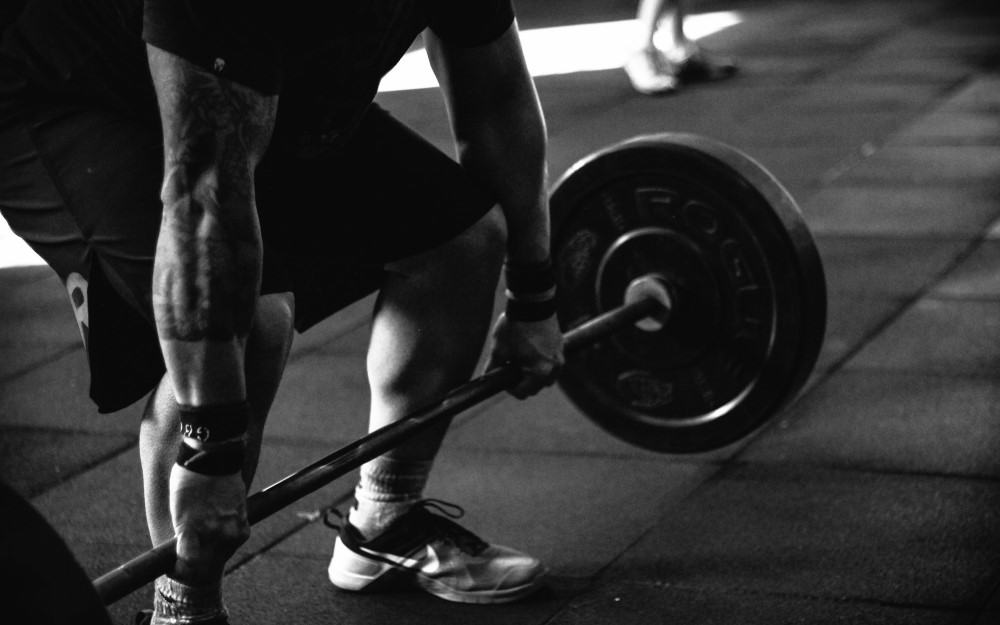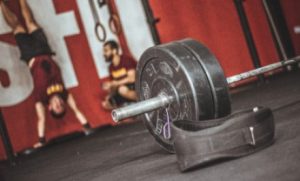When talking about building muscle, many people have some dissent on how long a workout should last for optimal muscle growth.
Similar to the discussion about whether you should take your protein before or after exercising, there is and always will be divided opinions.
So, is it 30 minutes? 45 minutes? 60 minutes? Or even longer?
What’s the optimal training duration?
If we travel back in time and would ask some of the most iconic bodybuilders like Arnold Schwarzenegger, their answer certainly wouldn’t be less than 120 minutes.
As you may notice, I am referring quite often to Arnold, and I really have to say that in my opinion, he is just one of the most motivational personalities on this planet.
If you haven’t listened to one of his speeches by now, I can only recommend you to do so. I mean this man’s actions speak louder than many words.
One of the most successful bodybuilders of all time, Governor of California and thriving actor.
How different can lines of occupations be?
Just astonishing what this man achieved. And that is exactly what he tries to convey to all the young people out there.
Everything is possible. Envision your goal and work for it.
Work hard. Every day. Never ever give up.
Anyway, without further ado let’s examine the optimal training length.
On the contrary to what many of these old-school bodybuilders believe in, nowadays more and more people seem to be convinced profoundly that workouts should be kept as short as possible.
After 45 minutes of strength training, it is believed that the level of the stress hormone cortisol increases and that of the muscle-building testosterone decrease.
This study shows that there is a relationship between cortisol and testosterone, however further research is necessary to come up with a clear conclusion.
Thus, longer workouts can even exert counterproductive influences.
Especially busy people are wondering if it’s not equally viable to make progress with just 30-45 minutes of training instead of lifting weights for two hours straight.

What speaks for shorter workouts?
Let’s start with the short training sessions.
Can you achieve the same progress and results with literally half the effort?
To put it shortly, it depends on your individual goals but generally speaking yes, it is possible.
If we take a look at the development of the fitness industry, particularly fitness trends and programs like Tabata, CrossFit, Freeletics or HIIT gained momentum amongst our society.
People are as busy as they have never been before.
Time is a rare commodity.
That’s one of the main reasons why there are so many programs and coachings out there that promise lightning-fast results.
But of course, only if you purchase and follow THAT particular programe.
So, we can put on record that society moves the fitness trend closer and closer to shorter workout times.
And inherently, there is nothing against it because the quantity does not say anything about the quality of your workouts.
In other words, if you train with high intensity over a shorter period of time it is even more efficient than spending two hours in the gym doing things by halves.
One thing’s for sure, the longer a training session, the lower the intensity.
Let me illustrate that by giving you a simple example.
Assume you’re doing squats.
With your own body weight (low intensity) you can certainly do quite a lot reps until you are exhausted (long duration).
But if you take a barbell preloaded with some weight plates on (high intensity), your legs will already get tired after a few reps (short duration).
Therefore, the shorter training exposes your body to a correspondingly higher intensity.
Furthermore, the fact that our body’s energy stores, the so-called glycogen stores, have been depleted after usually an hour of intense strength training, also speaks for a crisp, fast workout.
This not only makes the training from a certain point on ineffective, because apparently you lack the necessary power, but can even end in overtraining.
Because as your body has no energy available to its disposal, it just looks for yourself and attacks your hard-gained muscles.
Moreover, the longer the workout goes on, not only the physical energy drops but also the psychic.
Your motivation goes down, it becomes more difficult to maintain clean execution and oftentimes results in half-hearted sets.
As a result, the effectiveness suffers from that and in worst case that can also lead to injuries.
In addition, as already mentioned, several studies have revealed that from about the 45th-minute, strength training causes a decrease in the anabolic hormone testosterone and on the opposite stimulates an increase in the catabolic hormone cortisol.
To put it simple, the hormone situation shifts from muscle building to muscle depletion.

What speaks for longer workouts?
After we investigated what speaks for shorter workouts, let’s take a closer look at the other side of the coin and the reasons behind why so many people still believe in what Arnold did back then.
Literally living in the gym. Training several hours daily.
But how is that possible? What’s the point behind it?
While it’s true that the longer your training lasts, the more cortisol and the less testosterone is released, yet measurements show that the hormone levels normalize about 60-90 minutes after exercising.
There is no scientific evidence for the exact effect of the short-term unfavorable hormonal condition on muscle building.
The only certainty is that a chronically increased cortisol level or chronically low testosterone levels can inhibit or even reduce muscle growth.
But this condition only lasts for a short time – and that’s the case with longer training sessions!
Hormone status has no significant effect on muscle breakdown.
Additionally, what’s great about longer training session is that it allows you to incorporate one or the other isolation exercise into your training schedule.
The less time you have, the more important it is obviously to focus on the basic compound exercises such as deadlifts, squats, shoulder presses or bench presses. These build the foundation of your training program.
But if you have some more time to spend in the gym, you can, of course, attach a biceps exercise, no question.
However, only by virtue of the longer duration, it is not reasonable to kid around and waste time on your phone or any other distracting thing.
Keep the main thing the main thing.
Get your ass on that bench and lift.
Needless to say, how long you should train for optimal efficiency, depends on your particular goal.
Do you want to build strength? Do you want to become more aesthetic? Or just purely driven by muscle-building?
I think it’s pretty clear that you need more time in the gym when preparing for a competition or in general when doing bodybuilding as your profession.
Should we take bodybuilders routines as a guideline?
Here’s a popular “training rule”:
“Your strength training should take about an hour.”
It is a rule of thumb that has been proven in practice. But not set it stone.
With both longer and shorter workouts, you can achieve great results.
Many people are confused because they get completely different recommendations, lasting from 30 minutes to 3 hours a day.
Anyone who has been involved in strength training for some time will sooner or later encounter icons like Arnold Schwarzenegger.
In his first autobiography “The Education of a Bodybuilder“, he wrote: “At first you will train for at least one hour and eventually for two hours.”
In his peak phase, Arnold trained for three to four hours a day, divided into two training sessions of two hours each.
And if professional bodybuilders work out several hours a day, then it’s probably necessary in order to maximize muscle growth, right?
Nope, not necessarily.
I mean it is quite obvious that a lot of the professionals can only sustain such a workload because they
- have above-average genetics
- use anabolic steroids and other performance-enhancing substances
In other words, most professional bodybuilders that you’re seeing on Mr. Olympia (the most important bodybuilding competition) stage, are walking pharmacies.
External hormones and performance-enhancing chemicals can deliver unnaturally high levels of performance and boost your regenerative capacity.
At the same time, we as ordinary people were recommended not to train for more than 45 minutes at a time.
As bodybuilding and weight training went through the development from niche to grassroots movement at the end of the last century, things got even more complicated.
Business people scented morning air and launched “groundbreaking” training programs on the market.
They promise easy weight loss, maximized muscle growth, and that of course, with less effort and time.
Sometimes in just “a few minutes every day”. With this, they proclaimed the exact opposite of the old-school era of the Schwarzeneggers of this world.
And that is where we are still today:
Anyone who starts with strength and weight training does not have a clue about what to believe.
Even experienced athletes wonder if they have been training too long, or too short all these years.

How to determine your optimal training length? Key aspects to consider
“It depends.”
That’s not only one of the most favorite and common answer of my docent, but also very frequent to most questions about proper strength training.
And it applies here as well because how long your optimal workout should last obviously depends on many factors.
As you can see, there are sometimes quite contradictory arguments about how long you should train.
No wonder, because it’s truly not easy to answer that flat rate.
You need to consider certain factors individually if you want to know how long YOU should exercise to reach your specific goal.
In the following, I’ll give you 8 important variables that you should determine for yourself first:
- Training volume
The training volume refers to the total load that has been carried during a session.
You can calculate it with this formula: sets x reps x weight
For example, if you do 3 sets of 10 reps with 80 kg bench press, the training volume is 2400 (kg).
If you train 3 sets of 15 reps and 60kg bench press, the volume is 2700 (kg).
The higher the volume, the shorter your training should be.
Think about it. It’s pretty logical.
A higher load cannot be sustained as long as with a lower load.
- Intensity
To increase the intensity, there are various techniques such as supersets, drop sets or full-body workout instead of split training.
Also, reducing the breaks between each set can be used as an intensity technique.
The higher the intensity, the shorter you should train.
- Diet
How much protein do you consume daily?
Are you currently on cutting or bulking?
Do you supply sufficient vitamins and minerals that your body desperately needs to recover properly?
Do you drink enough water?
As a rule of thumb, the better your nutritional status, the more intense you can train.
Nutrition is anything but not merely black or white. As long as you ensure sufficient protein intake (2g per kilogram of body weight), eat enough fruits and vegetables to get all those required vitamins, minerals and trace elements, you’re probably good to go.
There is no such thing as “the perfect diet”.
Equally, as it applies to how long to train or when to take your protein, it depends on your personal goals and preference.
If you cannot sustain a certain approach in the long-run, then that it is definitely not the right way for you.
- Regeneration
Are you sleeping enough?
Do you have a lot of stress alongside training, either mentally or physically?
Do you have to be active in your job or are you just sitting in the office for eight hours?
Last but not least, genetics also plays a major role in how the individual regeneration ability turns out to be.
The worse your regeneration, the more your performance will suffer.
That consequently leads to:
The worse your regeneration, the more relaxed you should train.
Therefore longer units with low intensity.
- Training experience
Are you a bloody beginner? Do you already have some experience with strength training?
Particularly everybody who just got started training should limit their sessions to longer duration and (relatively) low intensity.
This will allow you to get used to proper technique, execution and of course, to the new strain on your ligaments, tendons, muscles, and bones.
- Available time
Do you have a full-time job? Or a part-time job? Are you a student and have more time?
Especially your occupation and the many other hobbies or commitments need or want to require a lot of time for friends and family.
Since long units do not match into your agenda, yet still seeking for the best possible results, you have to make your short units even more intense and efficient.
Of course, there are those people who would train for two, three or four hours a day, as long as they knew it would help them.
But most of us go to work, maybe have family and somehow get the workout in line with everything.
That’s why there are more and more workouts for busy people.
If need be, you could be squeezing an effective workout in 30 minutes.
For visible muscle gain results, around 60 minutes a week divided into two intense 30-minute workouts is the lower limit.
However, every minute of training is better than nothing.
But at the end of the day, you have to ask yourself how bad do you want it?
You make the call. Let me be clear about something: nobody is going to do the work for you.
- Goal
Depending on your goal, you have to train longer or shorter. Bodybuilders need a lot of isolation exercises, so more time.
For losing weight you should make short breaks between the sets and keep your heart rate up.
For strength, you take longer breaks and accordingly long sessions.
- Motivation
Can you get your ass up for high intense units? Or is that really too much for you?
Then you may need more relaxed and longer training.
However, motivation is one of the most significant factors that, especially for beginners, decide if you’re going to win this game or not.
Now, let’s get into more specific numbers.
The following rule of thumb has prevailed and takes into account the 8 factors mentioned above.
90% of people can achieve their goals with 45-60 minutes of strength training per workout.
BUT, granted that you use these 45-60 minutes meaningful and do not monkey around in the gym.
Professional bodybuilders, fitness models and performance-oriented strength athletes usually invest a little more. They spend about 60-90 minutes in each session.
Based on the studies and practical experience, it can be said:
If you want to maximize your muscle-building progress, you should schedule at least 4 hours of strength training per week.
For a limited period of time, for example in a diet, even 5 hours a week can be useful.
This could be implemented with 3-5 training sessions of 45-60 minutes each.
Thus, there is plenty of scopes to adapt the exercise duration to your current lifestyle without sacrificing progress.
Whether it’s six times a week for only 40 minutes or its four times for 60 minutes each, that’s individual preference and depends on your goals.
Conclusion
To round off this article about the optimal training length, let’s recap the main take aways.
How long you should train is highly dependend on your progress and time available that you want to dedicate for this purpose.
The goal of your training is to set a growth stimulus.
So getting better week after week by moving more weight or doing more reps. How you’re going to achieve that varies individually.
There isn’t just one way of doing it.
I know this is another quite vague “come on” answer. But that’s exactly what I want to convey you of.
At some point, the moment comes when you stop working on dull prefabricated programs.
This is the moment when you learn more and more to listen to the signals of your body and to align your training accordingly.
If you train for 90 minutes, feel great and also make good progress, why should you change that?
Just because someone tells you it’s the “right” workout duration?
On the opposite, if 90 minutes of training are torture and you’re not getting anywhere, then that is a sign for you to try a different approach.
I hope this article gave you a good impression that once more, fitness is not merely a black or white topic.
Don’t stress too much about all those discussions throughout the fitness society. As long as you’re making progress, stick to that.
How long do you train on average? What’s your experience with the optimal training duration?
Leave a comment below!
Thanks for reading,
Cheers,
Claas




